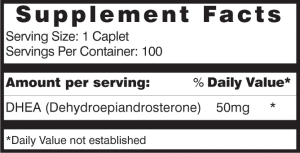Linking Erectile Dysfunction and Low Testosterone
 Erectile dysfunction is a common problem that affects many men. This being said, it is important to explore its causes and how it can be addressed. Because of testosterone’s prominence in men’s sexual function, it has been explored as a determining factor in erectile dysfunction. The following study describes how erectile dysfunction and low libido may be related to available testosterone in the body. It also examines how supplementing this testosterone deficiency may provide a better for you.
Erectile dysfunction is a common problem that affects many men. This being said, it is important to explore its causes and how it can be addressed. Because of testosterone’s prominence in men’s sexual function, it has been explored as a determining factor in erectile dysfunction. The following study describes how erectile dysfunction and low libido may be related to available testosterone in the body. It also examines how supplementing this testosterone deficiency may provide a better for you.
Different Types of Testosterone for Erectile Dysfunction
Many do not know that there are different types of testosterone in the body and that it is important to take note of their individual levels within a person’s system. The testosterone level measured when men go to the doctor is typically limited only to Total Testosterone. Patients only get the sum of unbound and bound testosterone present in the patient’s system.
The problem with this that the total amount of testosterone measured is not always fully available for use. Because of the presence of bound and unbound testosterone in the system, the Total Testosterone measurement for a person may not equal the precise amount of testosterone he is actually able to utilize. This is called Free Testosterone.
This is because bound and unbound testosterone are indicators of whether or not a testosterone can be immediately used by the body this Free Testosterone is a more important measure. A bound testosterone is one attached to proteins that need prior removal before it can be used, thereby needing some effort to be utilized. One of the proteins that binds to testosterones is albumin. While albumin does attach to testosterones, it is easily removed by the body when the testosterone is needed.
However, there are also particularly stubborn binding proteins that cannot be removed from the testosterone, thus rendering it unusable. An example of this is the Sex hormone binding globulin, or SBHG. Once SBHG attaches to your testosterone, it becomes unusable due to the difficulty of separating the protein from the testosterone, limiting the amount of available testosterone in the body.
The differences in functions and availability of these kinds of testosterone highlight the need to test for different types of testosterone. In studying testosterone levels in the system, it’s important to take into account the level of total testosterone, bio-available testosterone and free testosterone, along with the prevalence of SBHG proteins in the patients.
Free testosterone refers to unbound testosterones which are readily available to the body and thus, can be used with minimal effort. Bio-available testosterone, on the other hand, corresponds to both the free testosterones and testosterones bound to easily removed proteins such as albumin. SBHG limits the amount of Bio-available testosterone, giving a skewed amount of usable testosterone when analyzing the total count.
Erectile dysfunction’s relationship to your testosterone levels
Because of testosterone’s role as a primary sex hormone that establishes male traits and sex drive, research has been made to explore how testosterone levels and erectile function influence each other.
According to the study, there exists a proportional correlation between testosterone levels and erectile function, linking higher levels of the hormone with an increased sex drive and better erections. In addition to this, it also established that low testosterone levels was consistently present in cases of erectile dysfunction, and that low presence of the hormone may hamper erectile dysfunction medications such as Viagra from working properly.
Ultimately, the study concluded that a low amount of free testosterone coupled with high levels of SHBG posed the highest risk for erectile dysfunction in men, emphasizing the importance of monitoring testosterone levels when addressing the problem. Taking from the study, it goes that while there are many factors that can contribute to erectile function, it is useful to check testosterone levels because it was seen as a consistent influencing factor for erectile dysfunction as based on the data.
Because of testosterone’s effect on erectile dysfunction, aging men who are experiencing its symptoms are advised to first take a testosterone blood test that can measure the amount of total testosterone, free-testosterone and SHBG in their system. Because ultimately, it is free testosterone that determines the ready supply of the hormone in men, testing total testosterone may not provide sufficient information regarding one’s actual hormone levels. By testing all levels of testosterone, doctors may be able to determine if it is this deficit in available testosterone that hampers proper erectile function and sexual performance, providing the patient with better options of addressing the problem.
Hormone Therapeutics can help you learn more about testosterone
With the emergence of treatments for low testosterone levels today, you don’t have to bear its consequences anymore. This is why we have so many wives reaching out to us as well to find help for their loved one. Hormone Therapeutics can help you determine if low testosterone that is causing your sexual problems and provide testosterone replacement therapy, to remedy your concerns. We can treat with testosterone therapy, and/or erectile dysfunction treatments.
If you want to learn more about how to monitor your testosterone levels or fix low testosterone concentration and its consequences, our company can help you clear up your reservations. Give us a call and we’ll be happy to assist you as you take your first step towards improving your quality of life.
Linking Erectile Dysfunction and Low Testosterone
Saleamp Design April 5th, 2016
Posted In: Low T Info
Tags: albumin, Cialis, depression, ED, erectile dysfunction, erection, fatigue, free testosterone, impotence, libido, low libido, low t, low testosterone, sex, sexual function, SHGB, testosterone, Total Testosterone, Viagra
DHEA Benefits and Frontiers
 Dehydroepiandrosterone (DHEA) is a naturally occurring hormone produced in the body. Secreted by the adrenal glands, it is precursor to other hormones and is transformed by the body into specific hormones once it reaches the target tissue. As a prohormone, most of it effects are related to its end products as opposed to DHEA itself.
Dehydroepiandrosterone (DHEA) is a naturally occurring hormone produced in the body. Secreted by the adrenal glands, it is precursor to other hormones and is transformed by the body into specific hormones once it reaches the target tissue. As a prohormone, most of it effects are related to its end products as opposed to DHEA itself.
DHEA is gaining traction as an anti-aging supplement. It is also being explored as a treatment for several of the health conditions associated with aging.
DHEA and its effects
DHEA is often touted as a “youth restoring” hormone because of its reputation for slowing down the age process, improving general energy levels and cognitive skills. Because of this, many see it as a solution to regulate the side effects of aging and hormone depletion.
DHEA supplementation has shown an increase in energy, cognitive concentration, greater muscle mass/retention and slowing down the progression of Alzheimer disease. DHEA has been shown to have an influence on erectile dysfunction and lack of sex drive. In addition, Men with low DHEA more often experience depression as well as higher risks for overall mortality, including heart failure and cardiovascular threats.
DHEA Decline with Age
Unfortunately, DHEA production declines as its importance increases. DHEA production reaches its highest point during the 20s, but as one grows older, the body’s DHEA production decreases, leaving as little as 20% of the healthy output by the time one reaches 70.
Since it is a precursor to other hormones, this decline leads to a corresponding effect in other hormones as well. Estrogen and testosterone synthesis, in particular, wane once the DHEA levels decrease. This brings forth several consequences for both sexes. In men, specifically, age-related DHEA decrease leads to a decline in testosterone secretion. This decline is compounded because of the larger role DHEA plays in the production of testosterone as we age.
DHEA Supplements and their Effects
From trials, DHEA supplements have been shown to increase muscle mass, strength and physical well-being in general. In addition, tests of increased concentration, in men and women, have been shown to improve sexual potency and mood, with women experiencing less menopausal symptoms after taking supplements. Overall, DHEA has been seen as an anti-aging supplement, providing bone and muscle strength, better moods and immune system and increased memory.
When tested on patients with diabetes and neurological disorders, DHEA was not seen to improve erectile function and potency in patients. It has also been shown to exhibit minimal side effects such as mild acne, swollen ankles and increased facial hair in some women.
The effect of long term treatment on cardiovascular conditions and hormone-dependent tumors has not yet been studied, or have yielded conclusive results.
DHEA Frontiers
DHEA supplements for anti-aging purposes are currently gaining traction. As a precursory hormone, it is seen by many as a way to regulate hormone balance within the body. In addition, DHEA’s reputation in increased bone and muscle strength, as well as energy, has many physicians exploring DHEA supplements and its effect on bone growth, depression, and other mood and cognitive disorders.
Hormone Therapeutics
Hormone Therapeutics specializes in endocrine and hormone-related treatment, and is committed to finding the best treatment for your well-being. If you’re curious about how DHEA supplements can improve you and your life, Hormone Therapeutics can provide the answers for you. Call us today!
Do You Need Help?
Hormone Therapeutics is the leading national company assisting men who want to get their lives back through Hormone Replacement and Testosterone Replacement therapy. Our local physicians are ready to treat you anywhere in the entire country. Hormone Therapeutics is pioneering an easier, cost efficient and more private way for you to work with our clinical advisors and physicians from the privacy of your home or office after your local physical exam confirms you have one of the symptoms of Low T.
Contact us today and our clinical advisors will work with you on a hormone therapy program that may include prescribed hormones, exercise, nutrition and sleep programs to reclaim your vitality.
DHEA Benefits and Frontiers
Saleamp Design April 1st, 2016
Posted In: Health & Wellness
Tags: brain, brain fog, cardiovascular issues, Cialis, Dehydroepiandrosterone, depression, DHEA, ED, energy, erectile dysfunction, fatigue, hair loss, happiness, heart attack, low t, low testosterone, memory, muscle loss, muscle mass, sadness, sex drive, sexual function, stroke, supplements, testosterone, Viagra
6 Testosterone Boosting Foods
Whether you are on hormone replacement therapy or considering it, there are also many natural ways to boost your male hormones including altering your diet. These foods can help your t levels either in conjunction with TRT or on their own.
T levels peak during adolescence, and start to decline in ones late 20s at the rate of about 1 percent each year, but low levels can be caused by or expedited by stress, a bad diet, obesity, and other factors. Low levels of testosterone cause changes in sexual function, sex drive, insomnia, weight gain, fatigue, reduced strength and muscles, and can even cause depression and an inability to concentrate.
Boost t levels with the following foods:
6 Testosterone Boosting Foods
Hormone Therapeutics April 29th, 2014
Posted In: Health & Wellness
Tags: bad diet, bananas, boost t levels, Brazil nuts, depression, eggs, exhaustion, fatigue, garlic, hormone replacement therapy, improve testosterone, insomnia, losing weight, low t, low testosterone, male hormones, obesity, oysters, reduced strength, sex drive, sexual function, stress, testerone boosting foods, testosterone therapy, tired, weight control, weight gain


